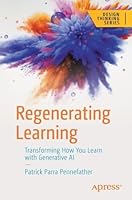
Beginning C++ Game Programming
- Length: 467 pages
- Edition: 1
- Language: English
- Publisher: Packt Publishing
- Publication Date: 2016-11-04
- ISBN-10: 1786466198
- ISBN-13: 9781786466198
- Sales Rank: #318363 (See Top 100 Books)
Key Features
- This book offers a fun way to learn modern C++ programming while building exciting 2D games
- This beginner-friendly guide offers a fast-paced but engaging approach to game development
- Dive headfirst into building a wide variety of desktop games that gradually increase in complexity
- It is packed with many suggestions to expand your finished games that will make you think critically, technically, and creatively
Book Description
This book is all about offering you a fun introduction to the world of game programming and C++. It will begin by teaching you the programming basics such as variables, loops, and conditions using game-like mini apps.
We then move on to build actual working games. Throughout the course of the book, you will learn to build three different styles of games comprising a frantic two-button-tapper, a zombie survival/shooter, and a multiplayer platformer. While building these games, you will learn some more C++ programming concepts such as OOP and data storage/complexity. We’ll end by creating a multiplayer shooter game and will also introduce you to some of the advanced capabilities of C++ such as networking and advanced OOP.
As the games gradually increase in complexity, you will explore some of the advanced capabilities of C++ as well as some exciting new game programming techniques.
What you will learn
- Get to know C++ from scratch while simultaneously learning about building games
- Make C++ game coding appear like it is something that any determined person can do
- Get a competent level knowledge of C++ programming.
- Build exciting games with a wide range of features
- Get ready to go and build your own unique games
Table of Contents
Chapter 1. C++, SFML, Visual Studio, and Starting the First Game
Chapter 2. Variables, Operators, and Decisions – Animating Sprites
Chapter 3. C++ Strings, SFML Time, Player Input, and HUD
Chapter 4. Loops, Arrays, Switch, Enumerations, and Functions – Implementing Game Mechanics
Chapter 5. Collisions, Sound, and End Conditions – Making the Game Playable
Chapter 6. Object-Oriented Programming, Classes, and SFML Views
Chapter 7. C++ References, Sprite Sheets, and Vertex Arrays
Chapter 8. Pointers, the Standard Template Library, and Texture Management
Chapter 9. Collision Detection, Pickups, and Bullets
Chapter 10. Layering Views and Implementing the HUD
Chapter 11. Sound Effects, File I/O, and Finishing the Game
Chapter 12. Abstraction and Code Management – Making Better Use of OOP
Chapter 13. Advanced OOP – Inheritance and Polymorphism
Chapter 14. Building Playable Levels and Collision Detection
Chapter 15. Sound Spatialization and HUD
Chapter 16. Extending SFML Classes, Particle Systems, and Shaders
Chapter 17. Before you go…







